Pac-12 players going on strike?!? It's a definite possibility
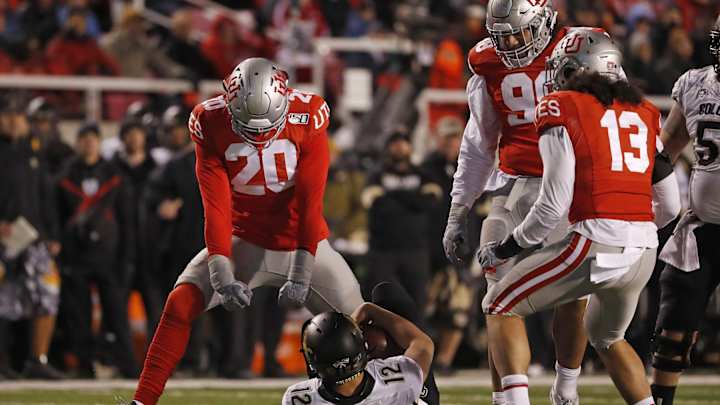
There has been so much work done by college football's Power 5 conferences throughout the past couple of months in order to ensure a season this fall. The conference commissioners have conversed with nearly everybody of importance in order to finalize a plan that they felt would be the best suited for everyone moving forward.
Well, almost every one.
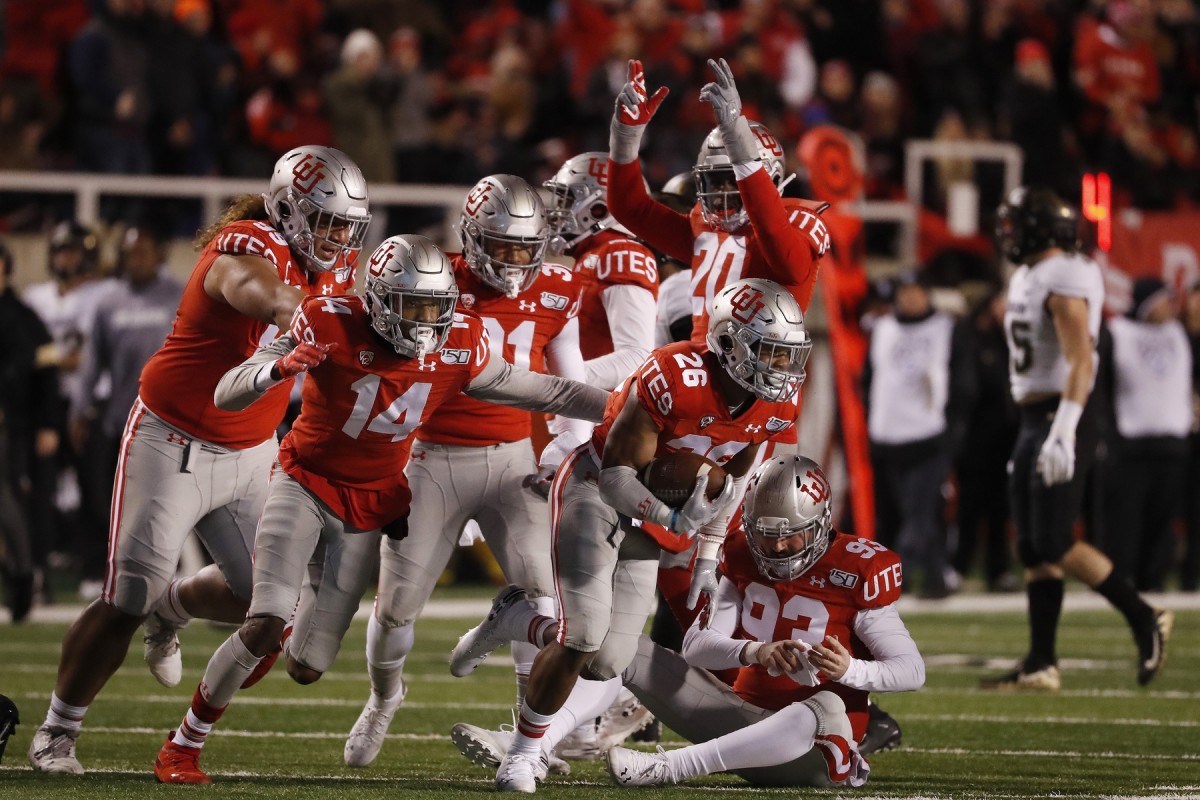
The one group that has had no voice in the whole matter — and by far has the most to lose — are the student athletes. So that's why hundreds of Pac-12 players have taken it upon themselves to make a difference and do what needs to be done in order to protect themselves — and they're willing to sit out the upcoming season if necessary.
Led by Oregon safety Jevon Holland (the most prominent player as a media contact) the Pac-12 football players announced on Sunday they will opt out of any upcoming training camps and games unless the conference negotiates with them and reaches a legal agreement regarding health and safety practices, while also addressing issues of racial injustice and economic inequality.
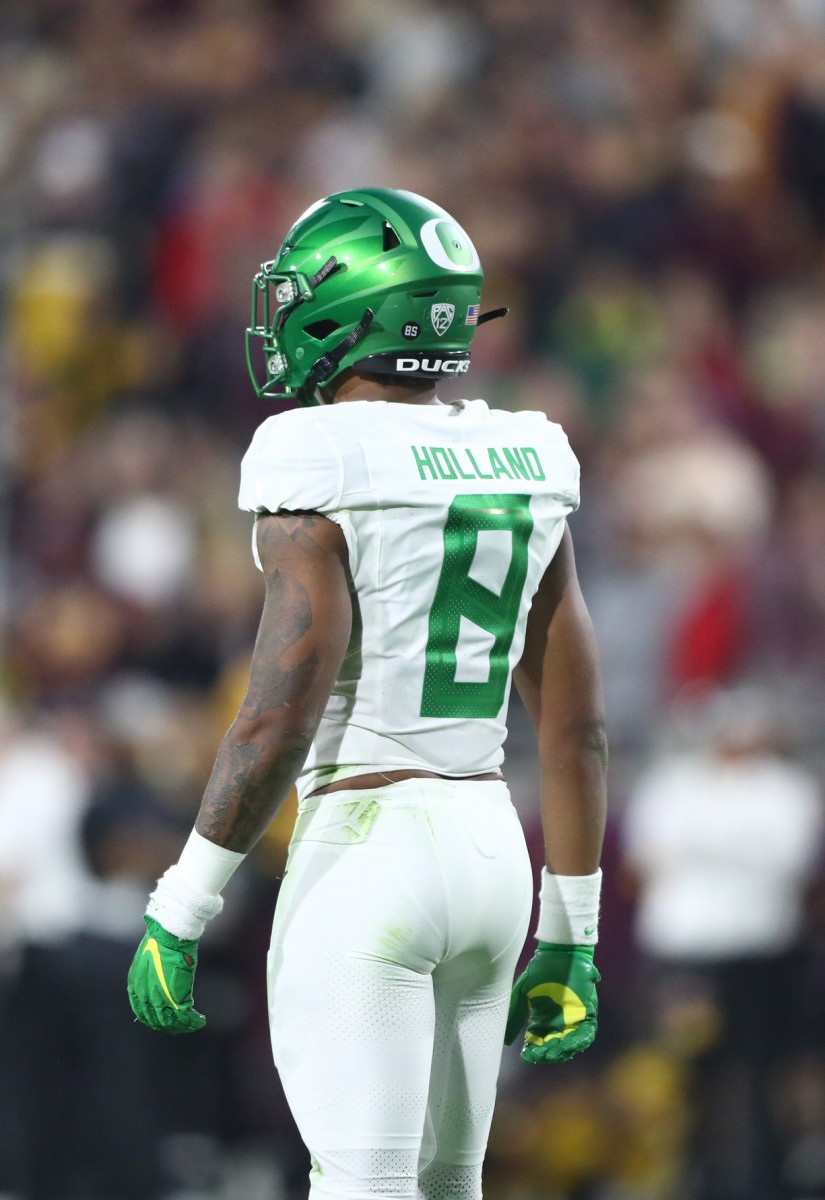
“We’re not your entertainment, we’re human beings,” Holland told SI. “Just like you would help your family, we want to help our mother, father, grandmother, everyone.
“We don’t know the long-term risks. We have no idea how it’s going to affect our body regardless if we show symptoms or not. I refuse to put my health at risk for somebody else’s benefit.”
When you combine the fact that the virus is showing no signs of slowing down (and no vaccine in the near future) and a second wave is expected in the fall/winter months with the civil rights protests taking part throughout the nation, this potential holdout is coming at a time that is very critical in the nation's history.
“The coronavirus has put a spotlight on a lot of the injustices in college athletics,” Cal offensive lineman Valentino Daltoso told Sports Illustrated. “The way to affect change and the way to get your voice heard is to affect the bottom line. Our power as players comes from being together. The only way to do this is to do something collectively.”
This is not a spur-of-the-moment action by the players, as they've been in contact with one another for the past couple of months to figure out what is the best way to move forward to reach their goals.
Those goals/demands consist of; 1.) Health and safety protections, 2.) Protection of all sports, 3.) End racial injustice in college sports and society, and 4.) Economic freedom and equality. The players want all of these demands for anybody wearing a college uniform, meaning for both scholarship and walk-on athletes.
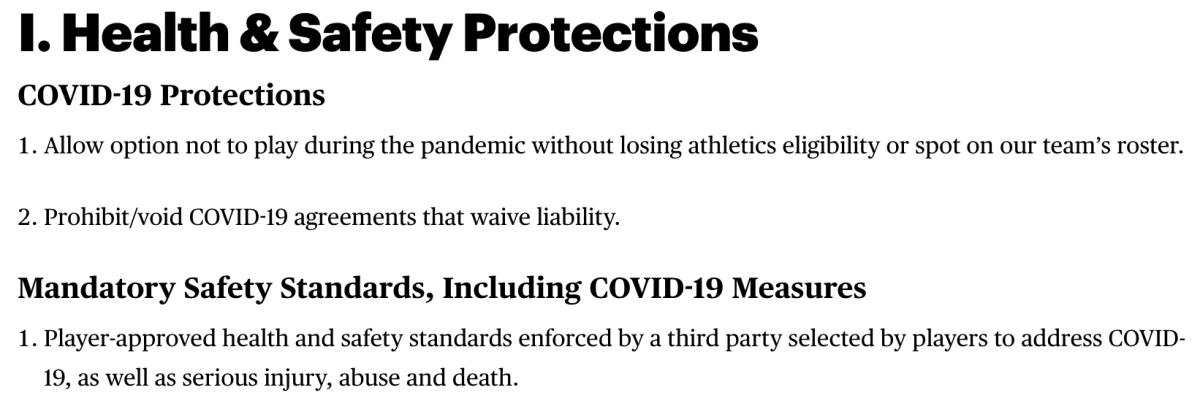
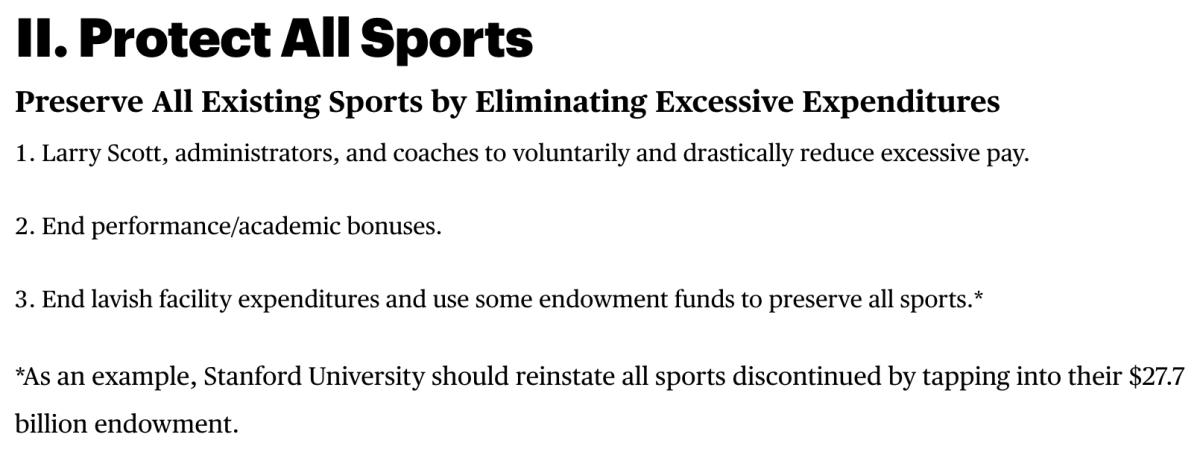
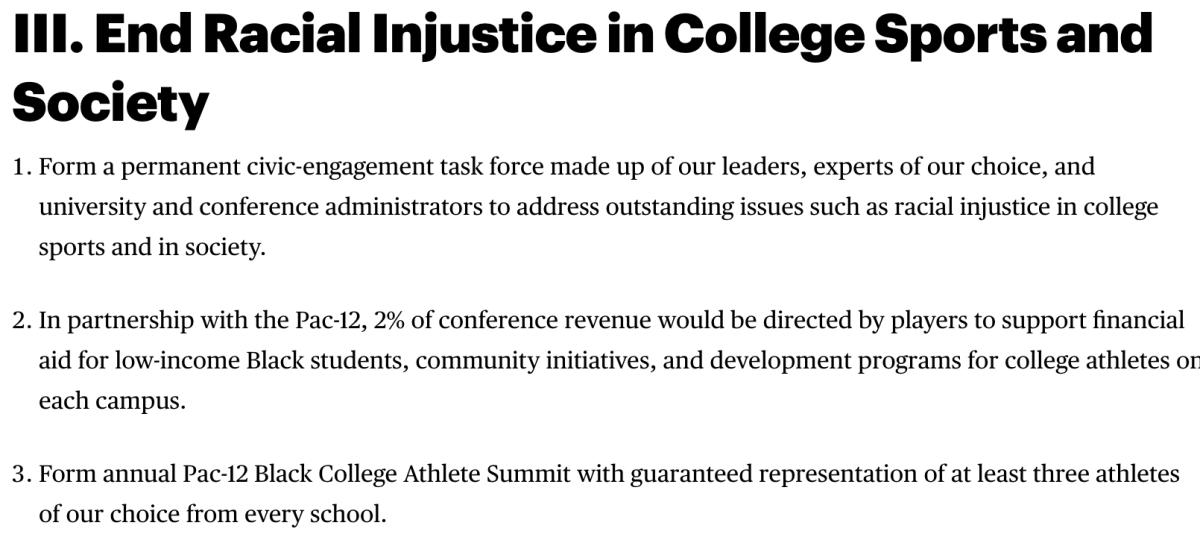
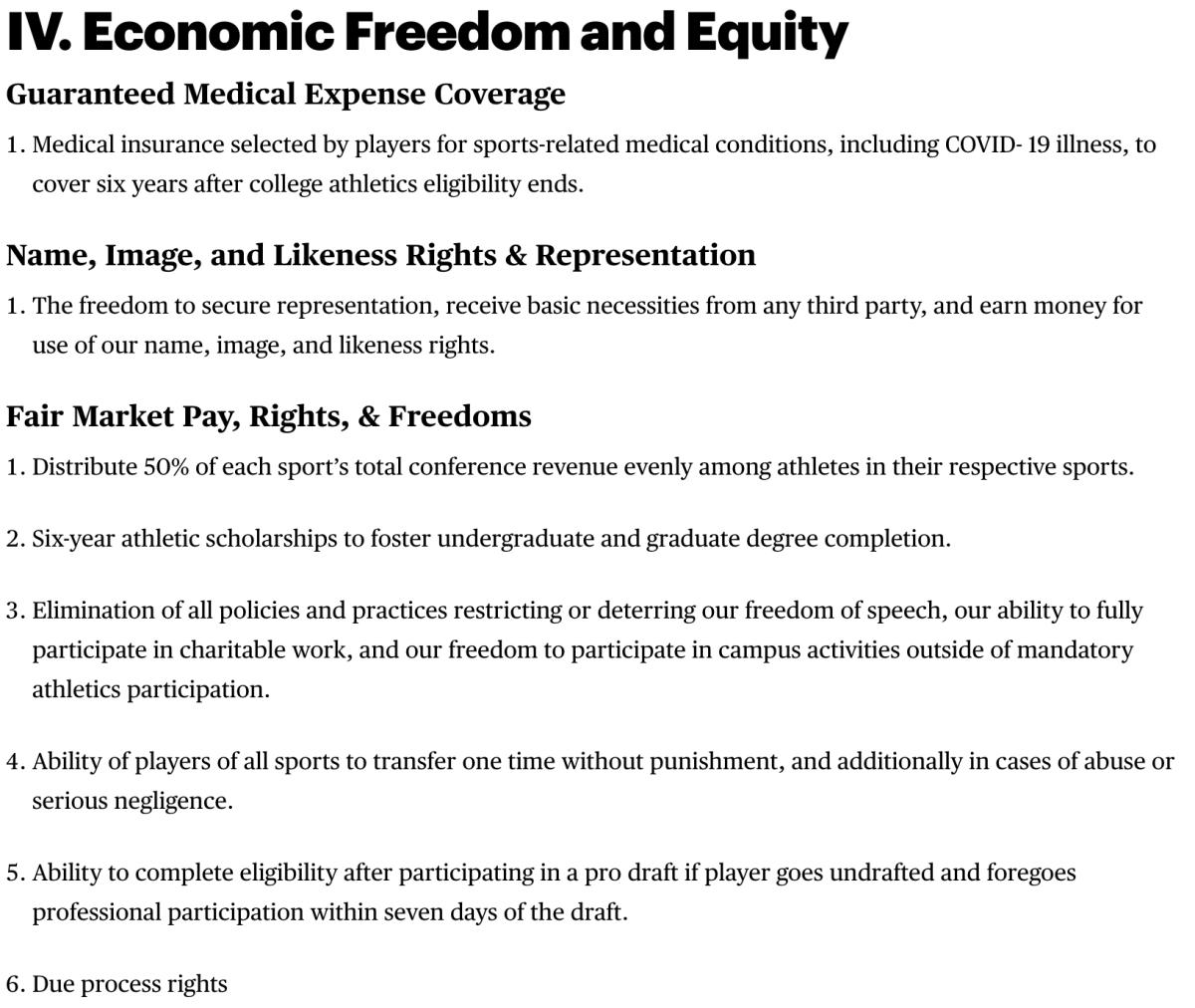
A separate Sports Illustrated article details what the NCAA has been doing to players for decades and how the current civil rights movement is changing the way life will ever be moving forward.
The NCAA has long marginalized athletes who make millions for many except themselves, but perhaps no situation has spotlighted the absurdity of the enterprise as much as the coronavirus pandemic. In some cases, schools are asking students to stay at home and take classes online while still asking athletes to play football games. Other schools are asking players to sign waivers absolving them of any liability involving COVID. The universities are making decisions without formalized input from players—unlike the return of every other sport—because the conference commissioners, athletic directors and coaches have too much money on the line not to play.
And all of this is happening against the backdrop of a civil rights movement that’s perhaps drawing more attention than ever to the plight of Black Americans. The NCAA announced in July it would allow athletes to wear social justice slogans on the backs of their jerseys in 2020–21. Meanwhile, the majority Black labor force of the highest-revenue generating sports (football and men’s basketball) are losing the opportunity to create generational wealth because all the money is hoarded by a select few.
“We’re trying to empower the lives of our teammates, change their lives and change the trajectory of their families’ lives,” Elisha Guidry, a defensive back at UCLA, told SI. “Especially Black lives. That’s who mostly make up these sports, and are disproportionately affected by the pandemic.”
“If you look at history throughout this country, there hasn’t been change without ruffling feathers,” Guidry adds. “Not everybody is going to want change because otherwise it would have happened already. People are going to have strong opinions. You wish you could talk to everybody and have a civil conversation and broaden their perspective. You have to do what you know is the right thing.”
As a result of the players’ collective action, the NCAA has an opportunity to do the right thing and meet them at the table for an honest negotiation. Earlier this summer, at the height of the protests over the police killing of George Floyd, the NCAA released a statement saying president Mark Emmert recognized the power of protest in creating societal change.
Now it's time to see if the NCAA and Pac-12 conference will actually meet these players at the table and hear what they have to say. If not, it could mean that all of the hard work put in to have a season this year may have been for nothing.
Want to share opinions or ask questions? We want to hear them! Making a profile is free and it only takes ~1 minute to set up. Also, be sure to like us on social media for future coverage:
Twitter — @UtahUtes_SI and Ryan Kostecka at @Ryan_Kostecka
